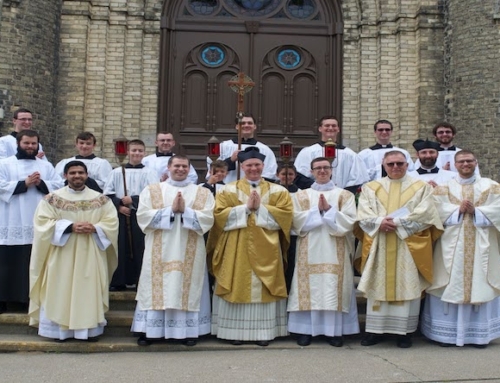Ted works at the Pentagon. I can’t tell you what he does—that’s strictly confidential—but I can tell you that he barely ever leaves the compound. Although his work is not extremely stressful in itself, it demands that he nearly always be present. Thus, he eats, sleeps, bathes, exercises, and generally goes about his life within the Pentagon’s walls. In fact, confidentiality is so strict, you see, that Ted is not allowed to send or receive personal communications outside the Pentagon. His personal contact to the world outside is limited to only one hour each week during which he is allowed to leave the premises.
The Pentagon compound is massive, like a city unto itself, so Ted doesn’t feel confined. Plus, he is good friends with his fellow workers, so he doesn’t get lonely. However, there is something different about Ted from the other workers. All the other workers are single, whereas Ted is married. His wife’s name is Kelly.
Over the almost four years that Ted has had this position, the Pentagon has not been allowing guest visitors, so Ted only gets to see Kelly for one hour each week. That’s it, just one short hour. She is the love of his life, so each week he eagerly counts the days till Sunday. (They meet at noon on Sundays.) The guards outside all recognize Kelly; she is always there waiting at the gate Sunday morning, waiting for the clock to strike 12:00, waiting for Ted.
One Sunday, something’s wrong. It’s 12:01, but Ted is not there. Ted’s never late. Kelly’s anxiety starts to build. Now 12:05, now 12:10, still no Ted. Her heart starts to race—What’s happened? Is Ted ok? Was he hurt? 12:15, her emotion overflows into action. Banging on the gatehouse’s sleek black-tinted window she calls out, “Hey, is anybody in there! What has happened to my husband!?” Over the intercom the guard tries to calm her down; he says he will check for her. A few more minutes pass. Then, the voice returns on the speaker, “Mrs. Barnett, Ma’am, your husband is not in the building. He’s signed out to take his hour with the crew at Big Diggs’ Sports Bar. Big game today, or something like that.”
One week has passed, and Ted is walking toward the gatehouse. It’s 11:57. What is he going to say to Kelly? He can’t just pretend like nothing’s happened. You worked so hard last week, you just needed some air with the guys, she’ll understand, he tries to reassure himself. But now, struck with a strong dose of reality, he knows he messed up big. No matter how he spins it, his action says one thing loud and clear: last week, football, beer, and the guys were more important to me than you, my love. That’s what I chose over my relationship with you. It’s 11:59. Ted swallows hard. He loves Kelly. He needs to make things right. He summons up some manly courage, opens the gate, and apologizes.
*****
This bizarre tale is an allegory for a commonplace event in the real world: Catholics skipping Sunday Mass. With this seemingly benign act, we prefer football, sleeping in, etc. to God, thus rupturing our relationship with the true “love of our life.” We may think to ourselves, I had a hard week, Jesus will understand, I can just pray to him on my own outside of Mass instead. No, when reality sinks in we know that Jesus loves us too much for such excuses to make any sense. He wants us to come celebrate his Resurrection, to find true rest in him, to take part in his sacrifice, to participate in his public worship, to receive his body and blood.
What do we do if we have skipped Sunday Mass? The Lord wants nothing less than to immediately welcome us back to the fold! However, we can’t just pretend that nothing has happened. Before receiving the Eucharist again, we need to repair our damaged relationship with the Lord. We need to summon some courage and apologize. This is exactly what the Sacrament of Confession is for, that we may receive his forgiveness and enter again into the joy of his loving embrace.
✠
Photo by Touch of Light (CC BY-SA 4.0)







